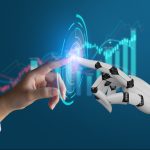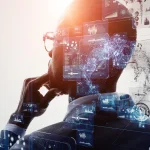Introduction
The digital era has transformed the way influence operates, creating an intersection between technology, celebrity culture, and international politics. What once depended on print and television now thrives through social media algorithms and artificial intelligence.
Celebrities, tech innovators, and world leaders now coexist in a shared digital ecosystem where reputation, data, and image determine power. The result is a communication revolution that has redefined how societies connect, consume, and engage with information.
The Rise of Digital Influence in the Modern World
Influence in the modern world is increasingly mediated by technology. Social platforms like X, Instagram, and TikTok serve as the new stages for political statements and celebrity activism. The speed at which ideas spread globally has never been faster or more impactful.
However, the same tools that empower individuals can also distort truth. AI-generated content, deepfakes, and algorithmic bias are blurring the lines between authenticity and manipulation, challenging global trust in media and leadership.
Celebrity Power and Political Engagement
The boundary between celebrity and politics has nearly disappeared. Public figures such as Taylor Swift, Leonardo DiCaprio, and Malala Yousafzai influence global political debates by combining fame with activism. Their audiences amplify their voices far beyond national borders.
This blending of entertainment and policy has both positive and complex outcomes. While it mobilizes younger generations toward social awareness, it also raises questions about the accountability and expertise of influential figures shaping global narratives.
Technology’s Role in Shaping Global Conversations
Technology has become the engine behind every major global conversation. Artificial intelligence curates information, determines visibility, and often dictates what issues gain attention. This digital filtering gives tech companies immense control over public discourse.
As algorithms grow more advanced, they shape not only consumption habits but also collective emotions. In this environment, communication becomes both a tool of empowerment and a battlefield for influence, where data is the ultimate weapon.
The Globalization of Entertainment and Politics
Entertainment and politics have merged into a single global spectacle. From political leaders appearing on talk shows to celebrities addressing the United Nations, both fields now use the same digital channels to reach audiences.
Streaming platforms and social networks have erased cultural borders, allowing content to influence public opinion across continents. This convergence creates a shared cultural language but also introduces the risk of homogenizing diverse perspectives.
AI and the Evolution of Public Image
Artificial intelligence is revolutionizing how public image is crafted. Deep learning models now generate content that enhances or protects the reputations of public figures. PR firms and governments are using AI-driven analytics to manage perception in real time.
Yet, the ethical implications are profound. When reality can be fabricated so convincingly, distinguishing fact from fiction becomes nearly impossible. The future of communication will depend on transparency, authenticity, and digital literacy.
The Future of Digital Diplomacy
Digital diplomacy is becoming a vital tool in international relations. Nations use social media to shape public perception, respond to crises, and build cultural connections. The success of these efforts depends heavily on technological sophistication and online credibility.
This new form of diplomacy also allows individuals, not just institutions, to influence global dialogue. Tech entrepreneurs and celebrities often act as unofficial ambassadors, redefining how global influence operates in the 21st century.
FAQs
How has technology changed global communication?
Technology has made communication faster, more interactive, and globally connected, though it also increases misinformation risks.
Why are celebrities so influential in politics today?
Their global platforms and public visibility allow them to reach audiences that traditional politicians often cannot.
What role does AI play in managing influence?
AI shapes public perception through content curation, predictive analytics, and reputation management tools.
How do social media algorithms affect public opinion?
Algorithms prioritize engagement, often amplifying emotional or controversial content over factual reporting.
Can digital diplomacy replace traditional diplomacy?
Digital diplomacy complements traditional methods by offering real-time engagement but cannot replace formal negotiations.
Conclusion
The digital age has blurred the boundaries between celebrity, technology, and politics, creating an interconnected system of influence that spans the globe. Power is no longer confined to governments or media institutions—it is distributed across digital platforms and personalities.
As artificial intelligence continues to evolve, the challenge for global society is to preserve authenticity and integrity in communication. The future will depend on how humanity uses technology—not just to connect, but to understand one another with empathy and truth.



